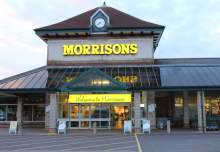You released your first statement on modern slavery this year - can you briefly tell us what you found from this first audit/ some of the "highlight" or "lowlights"?
Our statement is one that reflects an organisation that has been engaged with ethical training initiatives for 20 years. Consequently, I think one of the highlights is that we have a deep, long-lasting relationship with many of our suppliers, especially in our food business.
This does involve a range of audits, but crucially, we are directly involved with training our suppliers and providing them with skills so that they can take the right decisions when working with us. Essentially, the depth and breadth of our partnerships is most certainly a positive highlight.
In addition, our work in supporting victims of modern slavery is unique in the UK. This is about businesses doing more than just working with supply chains, but actually, engaging to help victims.
In terms of areas to focus on, I think it would be a positive move to evaluate our training methods so that we can make ensure that future development addresses on what works and what could be improved. Another aim is to deepen and lengthen our relationships with suppliers in sectors other than food.
You mentioned in an interview that ‘the real risk is not when the auditors are in, but the 51 weeks that they are not’ – could you tell us how you are addressing this problem?
Auditors are important because they help create a relationship with your supplier and they help you test what works well and equally what does not. Nevertheless, I think that it is essential that you build a capability in your suppliers, so that in the 51 weeks of the year that the auditors are not there, they have the right knowledge, skills and character to do the things you want them to do, especially when someone is not overseeing their every action.
How will you be monitoring and reporting on this going forward, are you going to change things around after the first year?
We publish two reports every year. One covers ethical and sustainability issues and the other is concerned with modern slavery. These reports outline what we do and what we are trying to achieve.
Both reports are transparent – anyone can look at it and see the data. Once more, I am delighted that we are listed as finalist in the International Report of the Year alongside many multinational firms. Although we are proud of our success, we hope to continue to develop our reporting to further our progress and recognition.
We are also due to announce the progress that we have made alongside our partners in projects that are concerned with social issues. One of these being trying to break the cycle of enslavement. In terms of monitoring and reporting on this issue, we seem to be on the right track but we are always willing to improve.
More broadly, do you think that the legislation is capable of driving real change on the issue?
The one thing that the legislation has achieved is to shine a light on the issue as a means to help victims. I think we should be hugely grateful to for this important landmark in legislation but it will take time to flourish. I most certainly believe that it is capable to driving real change, since it has raised the profile and implemented legal obligations for businesses. Although, there is room to build on the existing legislation.
Building on from this then, what improvements could be made to the legislation?
One of the ways it can go better is to hold businesses to account. I would suggest two areas of improvements.
One is compliance. Businesses should face harsh sanctions if they do not comply. Secondly, victims of modern slavery are victims of one of the worst crimes imaginable. Someone else ultimately owns them. Yet the support that they receive can be as little as 45 days long. It is imperative that any new bills include the funding and time to ensure that these victims have the right opportunities.
Paul Gerrard will be speaking at the Global Modern Slavery & Supply Chain Summit on the 14th November 2017.




